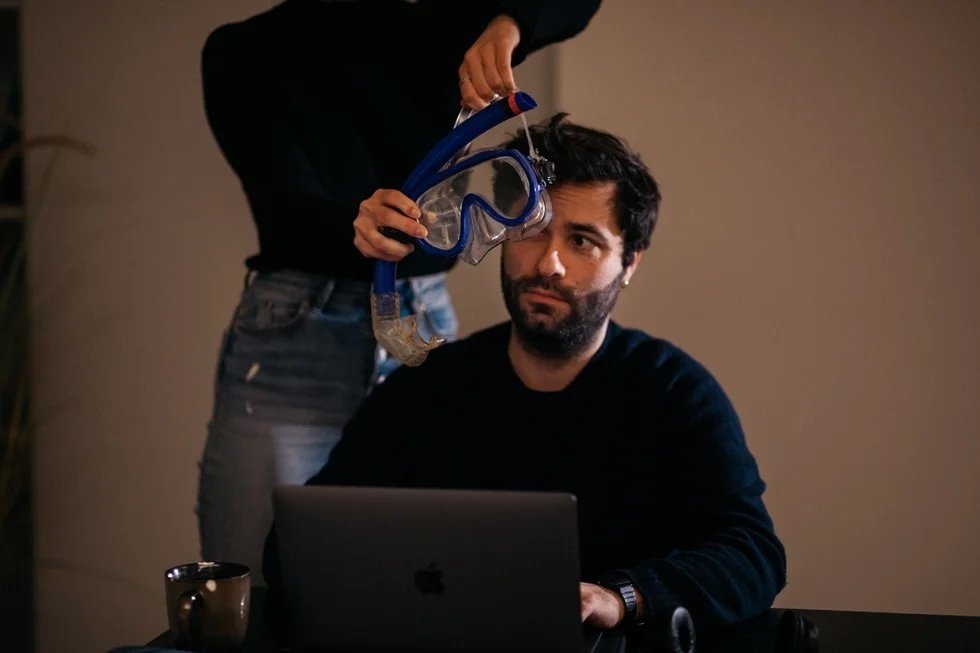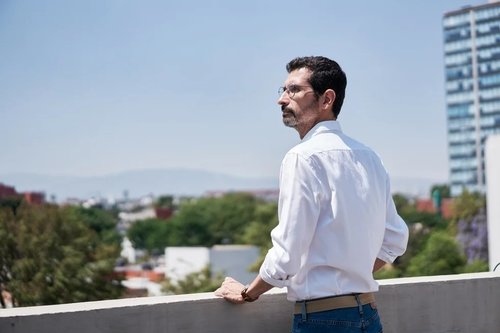Hangover leave? Pawternity PTO? Explore the world’s quirkiest paid leave initiatives
04 avr. 2024
6min


Journaliste Modern Work
If you relish having paid time off from your job but don’t like using up your vacation time taking a day here and a day there, you’ll love the unusual initiatives that some of the world’s most innovative companies have introduced. Are you nursing a broken heart? Perhaps you have a killer hangover? Maybe you’re thinking about opening your home – and your heart – to an abandoned puppy, but you don’t want to be down a day’s pay. Happily, some forward-thinking businesses are allowing their staff to take paid time off (PTO) when they feel they need it most.
But what should we make of these odd initiatives? And could they harm a company’s financial health? Candice Vander Weerdt, assistant lecturer in management at Cleveland State University and co-author of the study, Is Paid Sick Leave Bad for Business? says they represent a shift in our understanding of work-life balance.
Vander Weerdt says employers who grant paid leave understand that it contributes to their employees’ mental and physical health – and that having healthy and satisfied staff is important. “Paid leave helps both employees and the company. It makes workers happier, encourages them to stay longer at the company, [and] be more engaged — and employee results are improved,” she says.
It is also vital for startups, she adds. “In our study, we looked into the survival rates of new companies. If a company was launched and it offered paid leave and perks, it was more likely to survive over time compared with those that didn’t,” she says.
If a company offers less than 10 days of paid leave a year – a common practice in the US – employees tend to save them for emergencies and, some don’t use them even when they need to. However, Vander Weerdt points out that the more generous the leave, the more likely employees are to take advantage of it.
What’s on offer from innovative companies
Aside from vacation time, companies also offer single days off when they are needed most. Welcome to the Jungle has rounded up a selection of fun ways to get PTO in some parts of the US and around the world.
1. To cuddle your furry friend
Everyone knows that Rex (woof) and Simba (meow) are key members of the family. So, why shouldn’t we have time off when one of our furry companions is unwell or dies? Or when we decide to get a new pet? Some companies say that we should – and the idea is gaining momentum.
“Pawternity” leave was introduced at BrewDog in 2017. The Scottish brewery offered its employees a week off when adopting a dog. The popularity of this paid leave initiative has since grown thanks to a rise in pet adoptions during the pandemic.
Not everyone loves the idea, according to a 2021 poll created by Roger Wade, the chief executive of UK company Boxfund. Nearly 34,000 people took part, with 61% of respondents expressing opposition. The main objection stems from the notion that pets are not the same as children in terms of responsibility and that this paid leave leads to significant costs for the company.
In the US, where about 66% of US households own a pet, there isn’t an exhaustive list of companies offering this perk. However, some companies have embraced it – especially those working in the pet sector. For example, Mars Petcare, the name behind brands such as Pedigree and Whiskas, offers its employees 10 hours of paid leave when they get a new pet. Rover, the dog-sitter network, offers three days of paid bereavement leave after a pet dies.
2. To help quitters quit
In 2017, the Japanese marketing company Paila Inc gave six extra vacation days to its non-smoking employees. This was decided after an internal survey revealed that cigarette breaks significantly prolonged the amount of time spent away from desks during working hours. For Piala, the main reason for this anti-nicotine initiative was to “promote a healthy working environment” and to “encourage workers to stop smoking” in order to improve productivity and reduce medical costs.
In 2020, inspired by this Japanese initiative, UK company KCJ Training and Employment Solutions gave its non-smoking employees four extra days off. This was after the director of the company – who is a smoker – claimed that three 10-minute smoke breaks add up to 16 days a year.
Besides the costs linked to cigarette breaks, the effects of smoking on employees’ health are also a significant concern. A 2020 study by the Scandinavian Journal of Work, Environment & Health highlights that smokers are 31% more likely to take time off sick from work than non-smokers. What’s more, a study published by the _American Journal of Preventive Medicine _shows that the total loss of productivity in the US caused by smoking-linked diseases amounted to almost $185 billion in 2018. Could such initiatives help smokers quit once and for all?
3. To nurse a broken heart
You may have experienced this – and science has proven it – but having a broken heart isn’t great for our productivity at work. A study conducted in 2010 shows that people who have recently gone through a breakup spend 85% of their waking hours thinking about the person who rejected them. What’s more, the study indicates that heartache can cause physical pain. So, isn’t a day off after a breakup justified?
One company in Japan (yes, Japan again) has embraced this idea. In 2008, Hime & Company started to grant its employees “heartbreak leave” so they could return to work with a new mindset. “Not everyone needs to take maternity leave, but with heartache, everyone needs time off, just like when you get sick,” said chief executive Miki Hiradate in an interview with Reuters.
There are also more recent examples, such as at the Cebu Century Plaza Hotel in the Philippines. Since January 2023, hotel employees have had the right to take five days of paid leave following a breakup. However, there is a clause for hopeless romantics: this leave can only be taken once a year and on the condition that the employee can provide evidence that there was a relationship – and that it’s over. The hotel’s HR team is also available to offer psychological support to help heartbroken employees through their breakup.
4. To kick that hangover
Nausea, headaches, fuzzy thinking… Who hasn’t experienced all of the above at work following a wild night out? So it’s not surprising that, according to a 2022 survey, Americans ranked “hangover leave” as the job perk they’d most like to receive. Seemingly, this initiative would be just as welcomed by the British. A 2019 study conducted by the Institute of Alcohol Studies in the UK revealed that 42% of participants had been to work with a hangover or under the influence of alcohol. According to the study, these workers cost the UK economy $1.5-1.8 billion a year due to the loss in productivity from hangovers and intoxication.
Dice, a music ticketing software company, understands this issue. In 2017, the company decided to allow its employees to take up to four days off after heavy nights out. Operating in the gig scene, Dice knows its employees often attend concerts late into the night and then can’t get up the next day.
So the company has fun with its policy. If an employee is in no fit state to write a comprehensible sentence to their manager to say they’re hungover, they can just send a beer or vomiting emoji on WhatsApp… and the day off gets approved.
5. To simply rest
Do you have a slight cold, but you’re not actually ill enough to take sick leave? Are you feeling tired? Or do you just not want to go to work today? Well, a “duvet day” might be just the thing. These are days off provided without having to give advance notice. The first company to introduce “duvet days” was August One in the UK in 1997 – long before “work-life balance” had become a priority and when we were even less aware of the importance of good mental health at the workplace.
According to a 2018 survey published by Time4Sleep, 61% of participants admitted they’d taken a duvet day, with 36% taking one due to fatigue and 33% doing so due to feeling stressed and anxious. What’s more, 36% of participants said they believed that duvet days could help regulate stress and anxiety.
The World Health Organization estimates that depression and anxiety cost the world economy $1 trillion in terms of reduced productivity. So, while snuggling under the covers can be beneficial, duvet days aren’t the answer to all ills. A single day off during times of high stress won’t be enough to prevent burnout – though it could provide temporary comfort for some.
6. To blow out your candles
Want to enjoy every minute of your birthday – including the cake – without eating into your annual leave? If you work for H&M, that won’t be an issue. The clothing company gives staff a day off each year to have fun and blow out the candles on their cake.
If that perk sounds particularly appealing, you are not alone. Birthday leave is one of the most sought-after perks by workers. According to a 2018 survey by Perkbox, it now ranks sixth among the top 100 perks requested by British employees.
So, if paid leave is so beneficial and people are becoming more aware of the importance of a healthy work-life balance, can we expect quirky initiatives to become common in the years to come? Vander Weerdt says granting “special” days off is an excellent way for companies to stand out and attract talent.
However, she remains skeptical about their popularity growing. “Currently, it would seem that such paid leave is more popular among younger companies, or among those that have paid leave linked to what they do, for example, pawternity leave with companies working with animals,” Vander Weerdt explains. “I’m not sure as to what extent more ‘traditional’ companies will also adopt these days off.”
Translated by Jamie Broadway
Photo: Welcome to the Jungle
Follow Welcome to the Jungle on Facebook, LinkedIn, and Instagram, and subscribe to our newsletter to get our latest articles every week!

Inspirez-vous davantage sur : A l'international

Germany trials the four-day workweek: “Free time is invaluable”
Germany's four-day workweek trial may be the solution to greater productivity, worker satisfaction, and work-life balance.
10 juin 2024

The Fuckup Nights movement: The art of sharing failures on stage
Discover the global movement fostering learning, community, and authenticity with Fuckup Nights co-founder Pepe Villatoro.
23 mai 2024

Why is Europe so eager to attract foreign workers?
Looking for work abroad? Now might be your chance. The European Union is facing labor shortages, prompting efforts to attract foreign workers.
22 mai 2024

What if working less isn't the answer?
For sociologist and researcher Julia Posca, "It's not just about working less, it’s mainly about working better."
10 avr. 2024

This Japanese café makes you stay until you finish your work
It may be an unusual place, but this café helps lone workers to reconnect in a society where the collective still takes precedence...
24 janv. 2024
La newsletter qui fait le taf
Envie de ne louper aucun de nos articles ? Une fois par semaine, des histoires, des jobs et des conseils dans votre boite mail.

Vous êtes à la recherche d’une nouvelle opportunité ?
Plus de 200 000 candidats ont trouvé un emploi sur Welcome to the Jungle.
Explorer les jobs